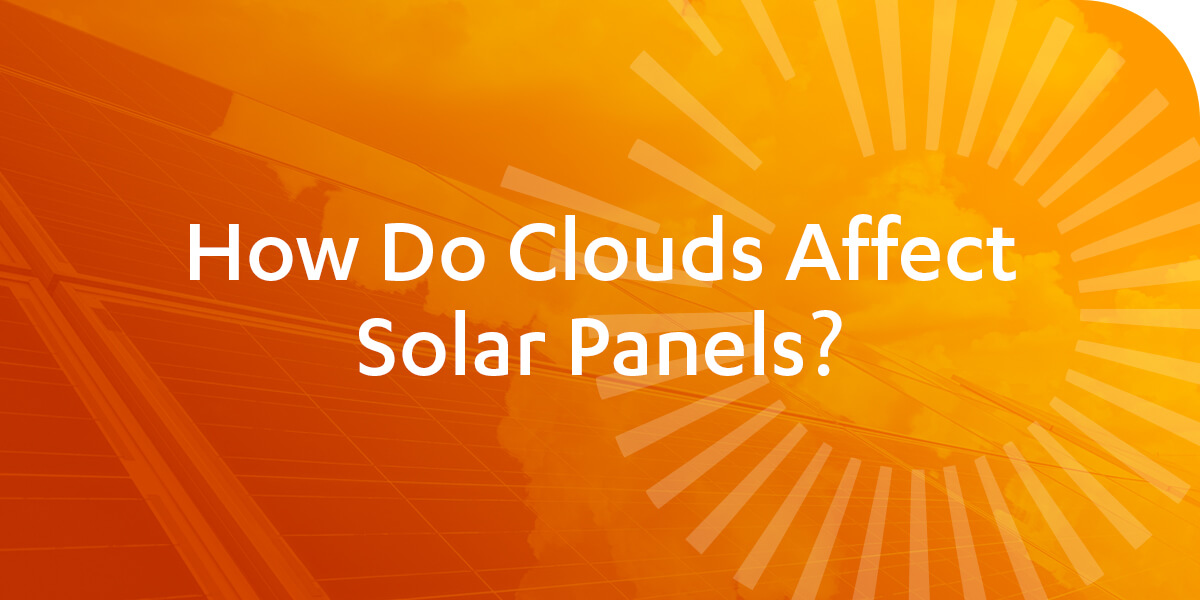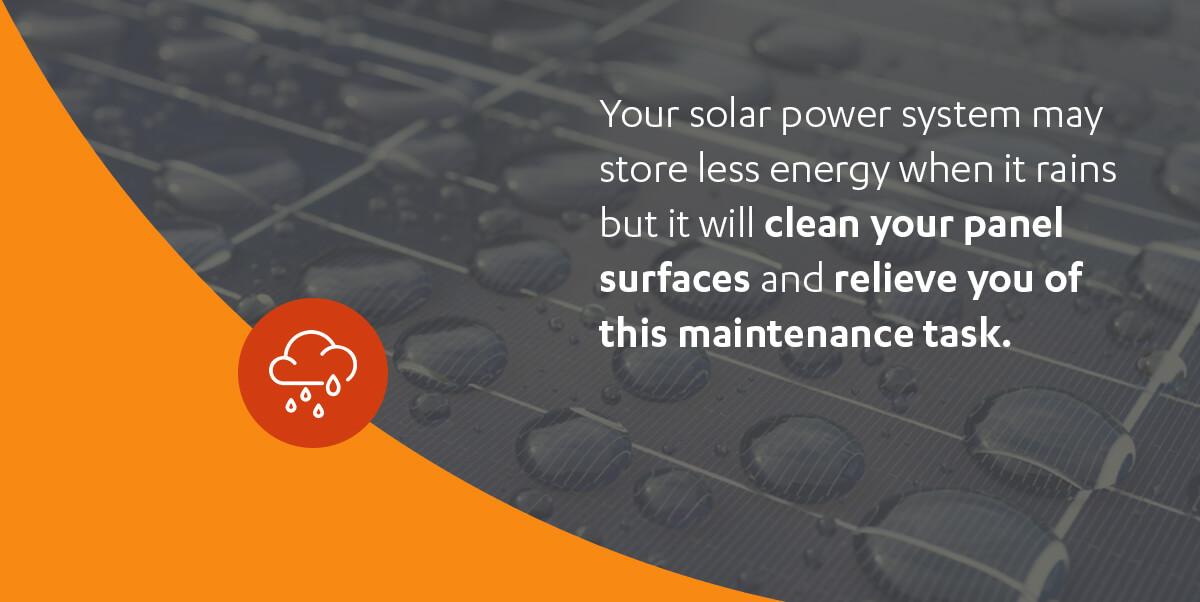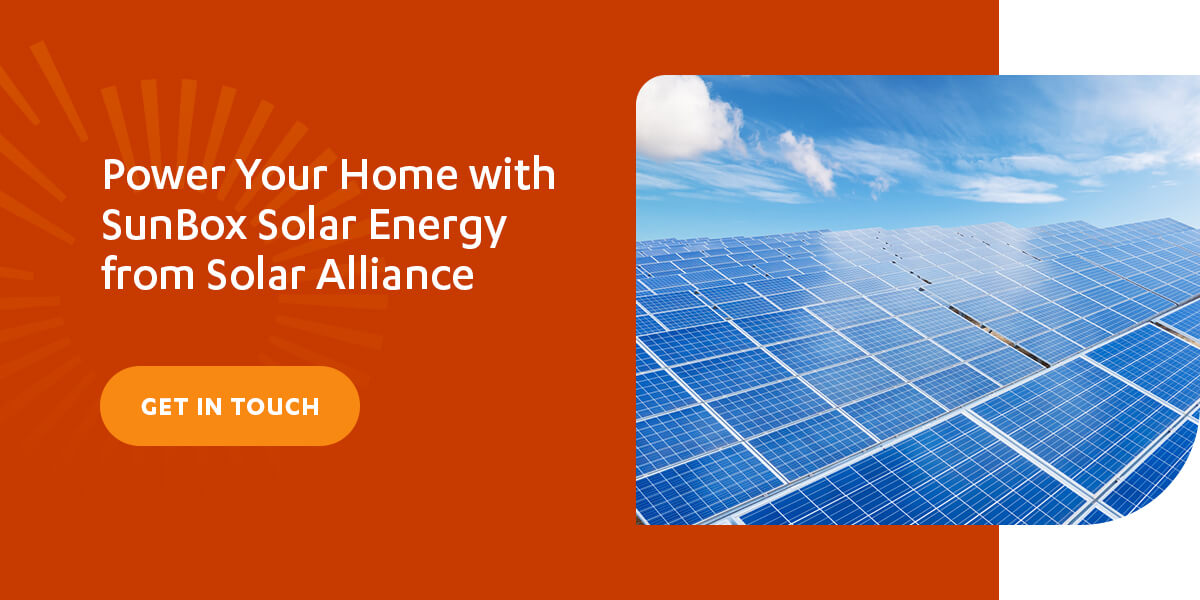
Last Updated on January 23, 2023 by Anne Brock
Solar panels are excellent renewable energy solutions. However, if you’re thinking about investing in a solar array for your property, you may be wondering, “How does weather affect solar panels?”
Solar panel systems provide peak efficiency on cool, sunny days when they can receive plenty of sunshine without excessive heat or humidity. Other weather conditions, such as cloud coverage and snow, can reduce the amount of power an array provides. Backup generators serve as extra energy sources that provide power when inclement weather affects solar panel performance.
Contact us today for your commercial or residential quote.
The Best Temperature for Solar Panel Efficiency
Do solar panels work better in the cold? You may be surprised to learn the answer is yes. Contrary to popular belief, solar panels absorb energy from the sun’s light, not its heat.
Sunlight consists of solar energy particles known as photons. Solar panels contain photovoltaic cells that collect photons and convert sunlight into electricity. When photon particles make contact with solar panel PV cells, electrons create an electric current that travels to an electric distribution box and supplies power to homes and other buildings. Temperature does not affect how much energy a solar panel receives, but it does impact how much power that energy will produce.
As solar panels receive more heat, they produce less power from sunlight. Electrons are normally at rest, which means they carry low energy. Sunlight activates them and stimulates a higher energy output. A solar panel’s power production depends on the difference between an electron’s resting state and its sunlight-activated, high-energy phase.
Heat also activates electrons and puts them in a high-energy state. Heated electrons will have high energy at rest, which reduces the difference between their resting and energized states, producing less power. Cold temperatures keep electrons in low energy states while they’re dormant, increasing the power they generate when sunlight activates them. That’s why solar panels perform best in cold weather.
Do Solar Panels Work in Cloudy or Rainy Weather?
Yes, solar panels can work on cloudy and rainy days, but not always at their peak performance. Their efficiency depends on the level of cloud coverage. Anything that blocks sunlight from solar panels can reduce their power production, including clouds, fog and shade from trees. However, solar panels can still receive sunlight on cloudy days. Clouds block some of the sun’s rays, but not all of them. A solar panel’s power production on cloudy days depends on the cloud coverage’s thickness.
Partly Cloudy Days
On a cloudy day, a solar panel can typically produce 10 to 25% of its typical power capacity. This percentage can vary based on the solar panel’s efficiency and the cloud coverage level. Solar electricity production can also intensify for brief moments on cloudy days due to the “edge-of-cloud” effect, which occurs when cumulus clouds pass by the sun and their edges magnify sunlight, causing more powerful sunlight beams to reach solar panel surfaces.
Overcast Days
Solar panels can produce electricity on cloudy days, but not always on overcast days. If an overcast day occurs, you can determine whether your system is producing energy by checking for shadows outside. Your system is most likely generating power to some extent if you can see objects casting shadows. The absence of shadows indicates the cloud coverage is too thick for sunlight to reach your solar panels.
Can Solar Panels Work in the Rain and Snow?

Solar panels can still operate in the rain, but their power output depends on cloud coverage. Heavy rain clouds will most likely hinder energy production, but rainfall provides a safe and easy way to clean solar panels. Rainfall can rinse solar panel surfaces, preventing layers of dirt and debris from forming and blocking future sunlight. Your solar power system may store less energy when it rains but it will clean your panel surfaces and relieve you of this maintenance task.
Snow can hinder solar energy production more than rain and cloud coverage because it accumulates on panel surfaces and blocks light. However, snow will eventually melt and slide off panels, depending on their tilt and the weather conditions following a snowstorm.
Effect of Wind on Solar Panels
Heat reduces the power solar panels can produce from sunlight. However, wind can help increase solar panels’ energy production by keeping them cool and reducing humidity. The wind cools solar panels the same way it refreshes us on a hot day. Wind won’t significantly affect a solar panel’s power efficiency, but it will make a minor difference that adds up over time.
Wind also whisks humidity off solar panels. Humidity causes small water droplets to accumulate on solar panel surfaces, similar to sweat beads on our skin. These water droplets can refract or reflect sunlight away from solar panel cells, decreasing the amount of sunlight that reaches them. Consistent humidity in areas with tropical climates can also damage some solar panels over time, shortening their lifespan. Wind helps dry moisture from solar panels on humid days and cool panel surfaces on hot days.
Backup Solar Power
Clouds, hot temperatures, rain and snow can minimize the amount of solar energy that reaches solar panels, significantly decrease a solar panel’s power production. However, there is a solution. Homes and businesses can still rely on solar power even on days with inclement weather. Commercial generators and home service backup generators can provide energy when weather conditions compromise solar panels’ efficiency.
Backup generators operate on propane, gasoline or diesel. They pair well with solar panels because they provide supplemental electricity, ensuring your lights and appliances continue to operate even on rainy, cloudy or snowy days.
Power Your Home With Sunbox Solar Energy
Solar energy is a cost-effective, environmentally conscious power solution for homes and small businesses. Since inclement weather can decrease a solar panel’s power output, it’s best to include a backup generator with your solar power system as an additional energy source. Keep your home or small business running efficiently with Solar Alliance’s Sunbox system.
The Sunbox solar panel package comes in four different sizes to meet each small business’ or homeowner’s needs and can pair with a backup generator for extra energy and peace of mind. Sunbox requires little maintenance and is durable enough to withstand the elements. It’s an all-in-one solution that will save you money and help you contribute to creating a healthier environment. Contact us today to request a quote or learn more about our Sunbox solar system and backup generators.

